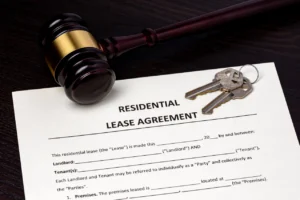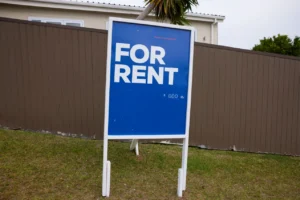What’s the difference between a security deposit and a holding deposit?

What Are Holding Deposits & When Should You Charge Them?
We’ve all done it before: we’ve found an item in a store, brought it to the register, and asked customer service to hold it so no one else can snag it while we shop. We’re used to seeing this practice in the retail industry, but did you know it is also commonplace in the rental world?
Like an item at a clothing store, prospective tenants can reserve an apartment with a holding deposit before signing a lease agreement. As a landlord, this tells you that a renter is serious about your property and doesn’t want to risk losing it to another applicant. However, unlike the retail industry, where holding deposits are just a few dollars, an apartment holding fee holds much more weight.
What Is a Holding Deposit for an Apartment?
A holding deposit is a sum of money paid to a landlord to reserve a rental property while the lease signing process is still underway. This holding fee commits a tenant and a landlord to one another, as the tenant closes themselves off to other potential rental properties, and the landlord takes their rental “off the market.” Forming this agreement gives both parties peace of mind and allows them to carry out the remainder of the rental process without worrying about their respective competition.
What Is the Difference Between a Security Deposit and a Holding Deposit?
It’s common to confuse holding and security deposits when dealing with rentals. Though similar in theory, these two deposits differ in purpose, cost, and significance.
Purpose
Renters pay security deposits before moving in to cover the cost of potential property damage made during their tenancy. If no damage is made to the property by the end of their lease, the tenant will get their security deposit back. However, if repairs need to be made, they will receive a partial or no refund, depending on the severity of the damage.
As mentioned earlier, holding deposits are used to reserve a rental property before making things official. These deposits are not used to cover property damage but rather to solidify an agreement between the landlord and tenant. While both deposits serve as a form of insurance for landlords, they are used for different aspects of the rental process.
Free Rental Application
Get 20 Rental Forms for FREE, including a rental application.
Cost
Holding deposits typically cost less than security deposits. On average, they can range from $100 to $400, depending on the specific holding deposit agreement, rent price, and market landscape.
A standard security deposit can cost anywhere from one month to three months’ rent. Like holding deposits, this amount will depend on the cost of rent and market landscape, as well as property size, type, and amenity selection. However, security deposits are mandated by state laws, as some states enforce limits on how much you can charge for a security deposit. Holding deposits, on the other hand, do not have legal restrictions in most states.
Significance
Both holding deposits and security deposits play vital roles in the rental process, but security deposits tend to hold greater significance. While holding deposits are meant to secure a property for a prospective tenant, they are less binding than security deposits. Even after a holding deposit is made, both landlords and tenants can still reconsider their decision about the property. In contrast, security deposits serve as a commitment that the tenant will move in as outlined in their lease agreement. These deposits come into play later in the rental process when both parties are fully on board.
When Should I Ask for a Holding Deposit?
The best time to charge a holding fee for an apartment is after a prospective renter views your property and expresses interest. This is especially important if you’re in a competitive market, as prospective renters will want to act fast before others can get to the property. If they’re serious about your rental, they will likely pay to hold it while the lease details are getting sorted.
If your property generates interest from multiple candidates, you may want to consider having a holding deposit agreement in place beforehand. This will ensure that the earliest interested party has the first right to reserve the property, giving them an advantage over potential competitors.
A comprehensive holding deposit agreement should state the following:
- The names and signatures of the landlord and tenants
- The holding deposit amount
- The requirements for a holding deposit refund
In the agreement, clearly stipulate the terms under which you are willing to refund the holding deposit if a tenant moves into the property or if a tenant does not move into the property. If a tenant does move into the property, state whether you will refund the holding deposit in full, deduct the refund from the security deposit, or deduct it from the first month’s rent. If a tenant chooses not to lease your property, indicate whether you plan to refund the holding deposit and when they should receive it.
Are Holding Deposits Refundable?
Generally, holding deposits are refundable, but this is contingent upon the specific holding deposit agreement and state laws. While many states lack clear policies regarding holding deposits, those that do typically mandate landlords to refund them.
You must have a valid justification if you intend to retain an apartment holding fee. Reasons for keeping the fee may include a tenant violating the agreement by missing critical deadlines, withdrawing without a valid reason, or providing false information on their application.
However, holding deposits should never be weaponized in the rental process. If a tenant changes their mind about your property, you should not retain their holding deposit as punishment. In this case, it is best to refund the deposit and continue searching for a suitable tenant.
How Long Can a Rental Be Held with a Deposit?
The duration of time a rental can be held with a holding deposit varies by state and landlord discretion. Some states mandate that landlords return the holding deposit within a certain timeframe, while others do not have specific guidelines.
It’s important to remember that apartment holding fees are meant to secure the property for an agreed-upon amount of time, typically between 24-72 hours. After this time passes, if a tenant has not completed their end of the agreement, such as filling out an application or signing the lease, you may release the hold on the property and put it back on the market. This will allow you to receive other inquiries and secure a new tenant.
Ensuring Rental Legitimacy with Holding Deposits
Some tenants may hesitate to pay a holding fee for an apartment if they’ve been targeted by rental scams. For example, they may have put down a holding deposit for another listing that turned out to be illegitimate and lost their money.
To avoid any confusion or miscommunication about holding deposits, you’ll need to establish business legitimacy and provide an official holding deposit policy. To do this successfully, consider the following tips:
- Create and sign a holding deposit agreement before accepting any payment from the tenant.
- Always accept traceable forms of payment, such as credit cards or checks. Never accept cash payment for a holding deposit.
- Clearly outline the terms and conditions for a holding deposit refund in writing.
- Keep detailed records of all holding deposits, including amounts, dates received, and reasons for withholding or releasing them.
Remember to always maintain transparency and trust when dealing with holding deposits. Be upfront about the terms of your rental’s holding deposits and provide clear documentation to verify your property. This will ease tenants’ concerns and clarify any doubts they may have about your holding deposit policy or the legitimacy of your business.
Frequently Asked Questions
What is the point of a holding deposit?
The point of a holding deposit is to secure a rental property for a prospective tenant while the lease signing process is underway. This allows both parties to commit to each other and removes competition from the equation.
What laws govern holding deposits?
Most states require landlords to return holding deposits to tenants. However, you may contest returning a holding deposit if your signed holding deposit agreement states that you are entitled to keep it.
What is an average holding deposit for apartments?
An average holding deposit costs $100 to $400. This rate will depend on the property’s rent price and the local rental market.
Are holding deposits refundable?
A holding deposit’s refundability will depend on the terms outlined in your holding deposit agreement and your state laws. Most states do not have specific rules for holding deposits, but those that do usually require landlords to refund holding deposits.
How should landlords handle holding deposits if multiple applications are received?
If multiple applications are received, landlords should establish a clear policy on handling holding deposits to manage competition fairly. Typically, landlords will hold the deposit for the first applicant who provides it, pending approval. A holding deposit agreement should specify the conditions under which others will be refunded if not selected.
Can a landlord charge multiple holding deposits for the same property?
Landlords should avoid charging multiple holding deposits for the same property to prevent legal issues and decrease the risk of miscommunication. Once a holding deposit is received, the property should be considered off the market until the agreement’s conditions are met or the hold is released.
What happens if a tenant backs out after paying a holding deposit?
If a tenant backs out, the landlord may be able to keep the deposit depending on the terms outlined in the holding deposit agreement. It’s important to document the reasons for retaining the deposit—for example if the tenant did not meet application criteria or deadlines—while ensuring compliance with applicable laws.
Source: Apartments.com













 Accessibility
Accessibility